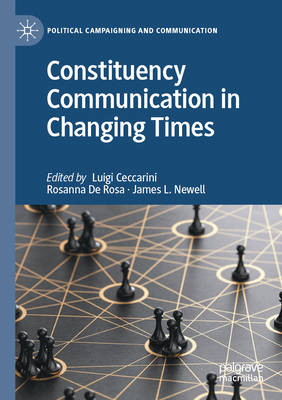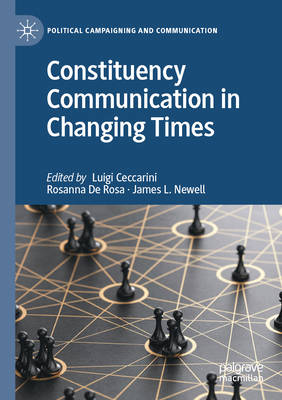
- Afhalen na 1 uur in een winkel met voorraad
- Gratis thuislevering in België vanaf € 30
- Ruim aanbod met 7 miljoen producten
- Afhalen na 1 uur in een winkel met voorraad
- Gratis thuislevering in België vanaf € 30
- Ruim aanbod met 7 miljoen producten
Constituency Communication in Changing Times
Omschrijving
This volume employs a comparative approach to cast light on representation and representative processes from a communications perspective. It focuses on online constituency communication, aiming to provide a perspective from which to empirically study the changes taking place in the relationship between citizens and their representatives. The (hyper)mediatisation of politics and society is here considered a relevant enabling factor, because it creates the conditions leading to change in the nature of democratic processes. The chapters discuss Podemos, the Lega, Law and Justice, and the Five-star Movement as good examples of this phenomenon.
Populist and nationalist forces have emerged as bottom-up and top-down entities aiming to embody the will of the people, or to push for democratic processes to be more inclusive. Until now, however, the intersection between populist and nationalist discourses and the related question of representation have been largely ignored. By analysingthe transformations that have taken place in MPs' communication practices in non-election periods, the contributors illuminate how social media is affecting MPs' communication and examine the strains in the relationship between executives and legislatures that populist and nationalist parties exploit.
Specificaties
Betrokkenen
- Uitgeverij:
Inhoud
- Aantal bladzijden:
- 337
- Taal:
- Engels
- Reeks:
Eigenschappen
- Productcode (EAN):
- 9783030913724
- Verschijningsdatum:
- 23/03/2023
- Uitvoering:
- Paperback
- Formaat:
- Trade paperback (VS)
- Afmetingen:
- 148 mm x 210 mm
- Gewicht:
- 421 g

Alleen bij Standaard Boekhandel
Beoordelingen
We publiceren alleen reviews die voldoen aan de voorwaarden voor reviews. Bekijk onze voorwaarden voor reviews.










